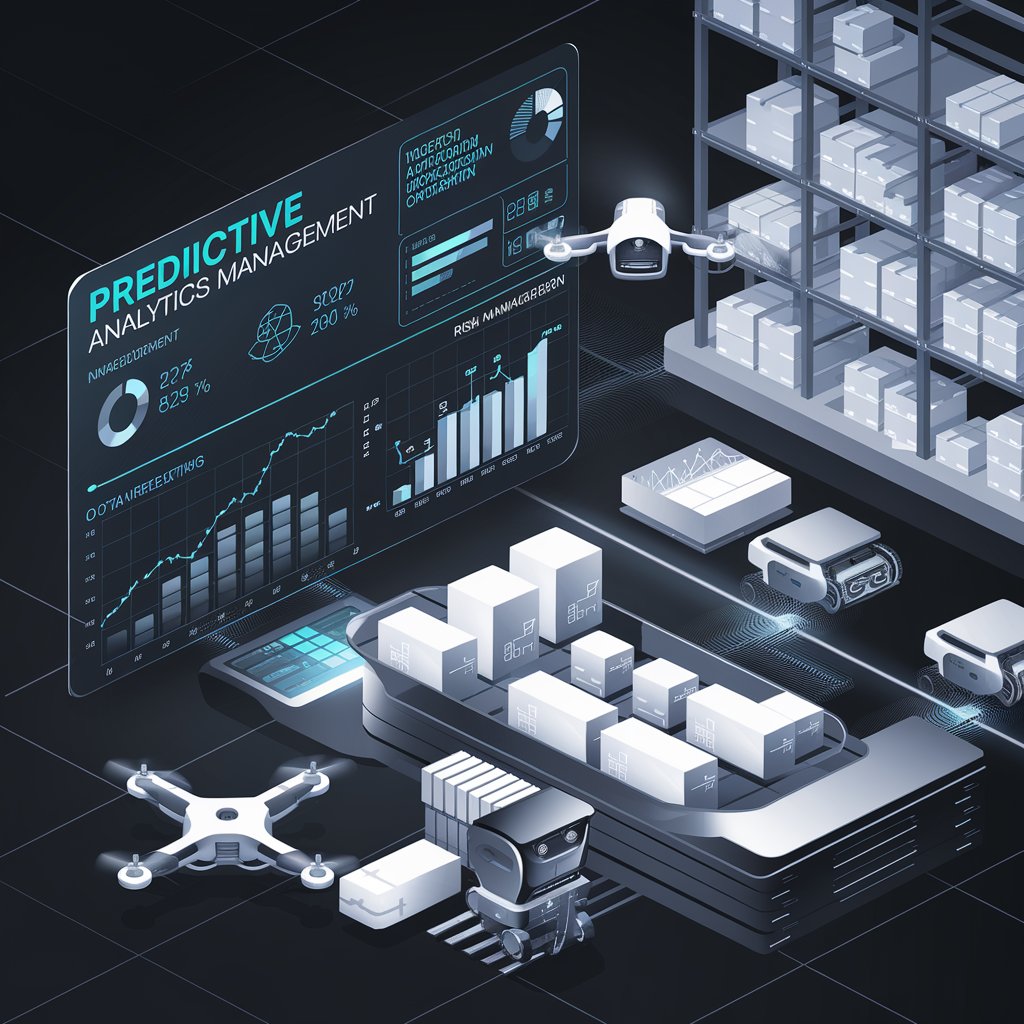Revolutionizing Operations with Predictive Analytics in Supply Chain: A Comprehensive Guide

What is Predictive Analytics in Supply Chain?
Predictive analytics in refers to the use of historical data, statistical algorithms, and machine learning techniques to identify the likelihood of future outcomes in operations. Key applications include:
- Demand forecasting
- Inventory optimization
- Supplier performance prediction
- Risk assessment and mitigation
- Price optimization
- Maintenance prediction
- Transportation optimization
- Customer behavior analysis
By applying predictive analytics to these areas, businesses can move from reactive to proactive supply chain management, leading to improved efficiency and competitiveness.
What is Predictive Analytics?
Predictive analytics in refers to the use of historical data, statistical algorithms, and machine learning techniques to identify the likelihood of future outcomes in supply chain operations. Key applications include:
- Demand forecasting
- Inventory optimization
- Supplier performance prediction
- Risk assessment and mitigation
- Price optimization
- Maintenance prediction
- Transportation optimization
- Customer behavior analysis
By applying predictive analytics to these areas, businesses can move from reactive to proactive supply chain management, leading to improved efficiency and competitiveness.

What is Predictive Analytics in Supply Chain?
Predictive analytics in refers to the use of historical data, statistical algorithms, and machine learning techniques to identify the likelihood of future outcomes in supply chain operations. Key applications include:
- Demand forecasting
- Inventory optimization
- Supplier performance prediction
- Risk assessment and mitigation
- Price optimization
- Maintenance prediction
- Transportation optimization
- Customer behavior analysis
By applying to these areas, businesses can move from reactive to proactive supply chain management, leading to improved efficiency and competitiveness.
What is Predictive Analytics in Supply Chain?
Predictive analytics in supply chain refers to the use of historical data, statistical algorithms, and machine learning techniques to identify the likelihood of future outcomes in supply chain operations. Key applications include:
- Demand forecasting
- Inventory optimization
- Supplier performance prediction
- Risk assessment and mitigation
- Price optimization
- Maintenance prediction
- Transportation optimization
- Customer behavior analysis
By applying predictive analytics to these areas, businesses can move from reactive to proactive management, leading to improved efficiency and competitiveness.

Benefits of Implementing Predictive Analytics in Supply Chain
- Improved Demand Forecasting: Enhance accuracy in predicting future demand patterns.
- Optimized Inventory Levels: Reduce excess inventory while minimizing stockouts.
- Enhanced Supplier Management: Predict and mitigate potential supplier issues before they occur.
- Reduced Operational Costs: Optimize resources and processes based on predictive insights.
- Improved Customer Satisfaction: Meet customer expectations more consistently with better planning.
- Proactive Risk Management: Anticipate and address potential disruptions in the supply chain.
- Data-Driven Decision Making: Base strategic and operational decisions on solid, predictive data.

Key Applications of Predictive Analytics in Supply Chain
When implementing predictive analytics in your supply chain, consider the following key applications:
- Demand Forecasting: Use historical data and external factors to predict future demand more accurately.
- Inventory Optimization: Determine optimal stock levels and reorder points based on predicted demand and lead times.
- Supplier Risk Assessment: Predict potential supplier issues and performance based on historical data and market indicators.
- Predictive Maintenance: Anticipate equipment failures and schedule maintenance to minimize downtime.
- Price Optimization: Predict the impact of price changes on demand and optimize pricing strategies.
- Transportation Route Optimization: Predict traffic patterns and other factors to optimize delivery routes.
- Customer Segmentation: Analyze customer behavior to predict preferences and tailor supply chain strategies accordingly.
- Quality Control: Predict potential quality issues in the production process based on various factors.
- Capacity Planning: Forecast capacity needs based on predicted demand and market trends.
- Cash Flow Optimization: Predict cash flow patterns to optimize working capital in the supply chain.

Implementing Predictive Analytics in Supply Chain: Best Practices
- Define Clear Objectives: Establish specific goals for your predictive analytics implementation, aligning them with overall business objectives.
- Ensure Data Quality: Invest in data cleansing and management to ensure the accuracy of your predictive models.
- Start with a Pilot Project: Begin with a focused project to demonstrate value and gain organizational buy-in.
- Choose the Right Tools: Select predictive analytics software that aligns with your specific needs and integrates well with existing systems.
- Build a Cross-Functional Team: Combine data science expertise with supply chain knowledge for effective implementation.
- Develop a Data-Driven Culture: Foster an organizational mindset that values and acts on data-driven insights.
- Continuously Refine Models: Regularly update and refine your predictive models based on new data and changing business conditions.
- Ensure Scalability: Choose solutions and architectures that can grow with your business needs.
- Provide Comprehensive Training: Invest in training for both technical teams and end-users to maximize the value of predictive insights.
- Monitor and Measure Impact: Regularly assess the performance and ROI of your predictive analytics initiatives.
Emerging Trends in Predictive Analytics for Supply Chain
As technology evolves, new trends are shaping the future:
- AI and Machine Learning for more sophisticated predictive models
- Real-time analytics for immediate insights and decision-making
- Prescriptive analytics to not only predict outcomes but also suggest actions
- Integration with Internet of Things (IoT) devices for more granular data collection
- Edge computing for faster processing of supply chain data
- Blockchain integration for enhanced data security and transparency
Staying informed about these trends can help you choose forward-thinking solutions that will serve your business well into the future.
Conclusion
Implementing predictive in your can transform your operations, leading to increased efficiency, reduced costs, and improved decision-making capabilities. By carefully considering your business needs and following best practices for selection and implementation, you can harness the full power of predictive analytics to drive your supply chain operations forward in today’s competitive business environment.
For businesses looking to revolutionize their with predictive, Linbis logistics software offers cutting-edge predictive analytics solutions. With its advanced machine learning algorithms, intuitive data visualization tools, and seamless integration capabilities, Linbis empowers businesses of all sizes to optimize their entire through data-driven insights and predictions. Experience the power of predictive analytics and transform your operations with Linbis.
